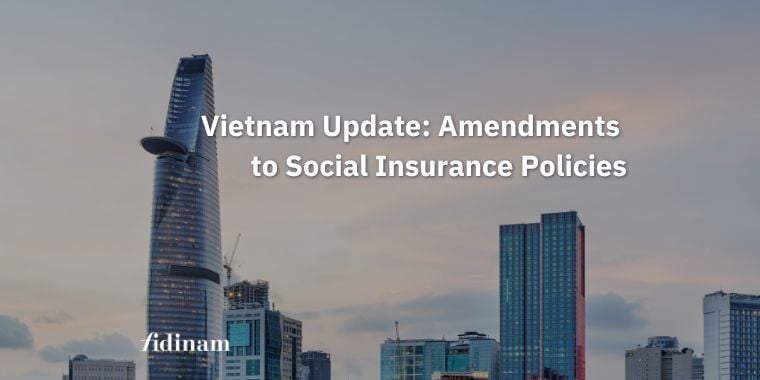
Starting July 1, 2025, important amendments in regulations on businesses, taxation, and financial obligations have officially begun in Vietnam. To assist organizations in remaining compliant and informed, Fidinam is launching a series of articles that emphasize the key regulatory updates.
The first article in this series discusses alterations to Vietnam's social insurance policies.
Keep updated—these modifications could influence your HR and compliance approaches in the future.
The revised Law on Social Insurance 2024 introduces broader coverage for individuals considered to be in employment-like relationships, even if their agreements are not formally titled as “labor contracts.” According to the law, any individual working under an agreement (regardless of its title) that includes compensation, wages, and management or supervision by one party shall be subject to compulsory social insurance.
This aligns with the 2019 Labor Code, which recognized informal employment relationships based on actual working conditions, not just contract titles. Previously, authorities relied on interpretations of the Labor Code to enforce SI contributions. The new regulation now provides clear legal grounds for enforcement.
Also, the scope of mandatory SI now also includes several key non-salaried managerial positions, such as:
These changes aim to tighten compliance across leadership levels and address longstanding ambiguities in SI coverage for certain management positions.
Additionally, Decree 158/2025 introduces a coordination mechanism to avoid duplicate SI contributions for individuals classified under multiple SI-covered groups. In such cases, the group with higher legal priority (as per Article 2 of the Law) will determine the SI responsibility.
Foreign nationals working in Vietnam were previously required to participate in mandatory social insurance if they met both of the following conditions:
In practice, foreign workers exempt from work permits due to marriage to a Vietnamese spouse were treated inconsistently across provinces—most local authorities did not require them to contribute to social insurance.
However, under the new law, all foreign nationals working in Vietnam under a fixed-term labor contract of at least 12 months with a local employer are subject to mandatory social insurance, regardless of whether they hold a Work Permit or a Work Permit Exemption.
The following categories are excluded from this requirement:
As a result, foreign workers who are exempt from work permits due to marriage to a Vietnamese citizen are now uniformly required to participate in social insurance, eliminating the prior inconsistency across provinces.
Under the new law, male employees whose wives give birth are entitled to flexible paternity leave. Notably, the leave can be split across multiple days within 60 days of childbirth (instead of 30 days as previously regulated), with allowances depending on circumstances:
These legislative updates signify a significant change in social insurance compliance for both domestic and individuals working in Vietnam.
Fidinam recommends that all employers and HR departments review their employment structures, contracts, and compliance frameworks to ensure alignment with the new obligations
All content © . All Rights Reserved.